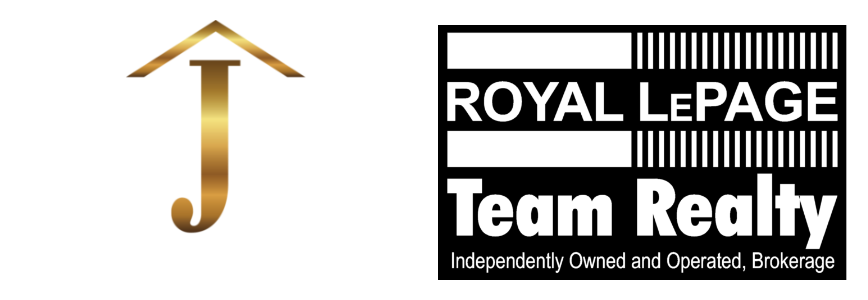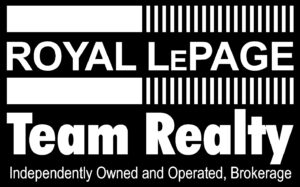Ready to Buy?
We’ll help you find your new home
Whether you’re ready to take the plunge and buy your first home, you want to start searching for your dream home, or you’re looking to downsize to a smaller home, there are a lot of things to consider.
Below are some of the questions we are asked most often, and advice to help you get started. If you have a question you don’t see here, or you want to learn more about what is involved with buying a home, please don’t hesitate to connect with us.
Questions
What is the process to buying a house?
Buying a house can be very exciting, but it can also be a stressful time. We aim to make it as smooth as possible buy guiding you through the process, one step at a time:
- Meet to discuss your criteria and wish list for your perfect home, and set up showings for properties that are of interest.
- Prepare and review the documents for electronic signatures for the buyer.
- Bring you to showings and establish if the properties suit your needs.
- Once you find a home you like, we will prepare an offer and negotiations.
- Once your offer is accepted, we secure the sale for you.
Should I get pre-approved for a mortgage first?
ABSOLUTELY!
Most mortgage lenders take the guess work out of applying for a loan by determining for you the amount you can afford to borrow. Then, they give you a printed document stating the maximum mortgage amount you qualify for based on your income and financial situation.
Mortgage pre-approval establishes your price range and strengthens your buying position by letting the seller know that you have already been pre-approved for the loan. It can also ease time constraints once the purchase agreement is signed between the buyer and seller.
One last thing to mention……pre-approval is different than being pre-qualified for a loan. Make sure your financial institution knows you would like to be pre-qualified for a loan. This process involves the financial institution doing a credit check. It’s not enough that your financial institution looks at your debts and income and tells you how much you can afford. One last thing, make sure you are pre-qualified within the last three months before looking at buying a property.
How much do I qualify for?
When buying a home, it is helpful to determine the type of home you’ll like and how much you can afford before beginning your search. Most lenders allocate approximately 28% of your GROSS MONTHLY INCOME to housing expenses. Housing expenses includes principal, interest, house taxes and house insurance. To get an idea of how much you can afford to pay each month for a home, multiply your GROSS MONTHLY INCOME by 28%.
When coupled with outstanding loans/debt, the total for your debt service should not exceed 36% of your gross monthly income. Some lenders may have a more liberal requirement or loan interest rate which may increase your purchasing power.
Mortgage interest, property taxes, loan fees or what they call in the financial world “points” are currently tax deductible . Points are generally deductible in the year paid. One point is equivalent to 1% of your mortgage amount. If you are in the 28% tax bracket, this is equivalent to receiving a 28% discount on your mortgage interest and property taxes. During the first years of your mortgage, your tax savings are especially high because most of your monthly payment goes toward the loan interest. So in the first years of your mortgage, you will see most of your monthly or bi-weekly payments going towards interest first…then touching the principal.
How much should I offer?
Finding your dream property can be a very exciting time in your life. Making an offer on that special home however can be somewhat of a stressful task in ones life!
The written offer is a step in the home buying process that requires the finesse, experience and negotiation of a skilled REALTOR professional.
How much should I offer?
There are several factors to consider when deciding how much to offer: the listing price of the home, the prices of comparable properties that are also for sale or have sold recently, and what you, the buyer can afford.
The Listing Price: Also known as the “asking” price, this is a rough estimate of what the seller would like to receive. It is important to consider a few factors:
- How long has the property been on the market;
- Have there been any price reductions;
- Whether the property is a foreclosure or short sale;
- And finally, if there are multiple offers being presented to the seller.
Price of comparable properties: Your Realtor can provide you with a list of comparable properties or “comparisons” that have recently sold in the area near the property you are about to make an offer on. The most relative and supporting comparables should fall within these guidelines:
- Sales that have occurred within the last three to six months – the most recent the better
- Sales of properties similar to the one you’re making an offer on, in terms of age, size, number of bathrooms and bedrooms.
- Sales within a reasonable proximity to the property you are about to make an offer on (six to ten blocks in urban areas), for rural properties it’s a little bit different.
Once you’ve considered all the factors mentioned above, it’s time to decide on a number. In competitive areas, or what they call “hot markets”, you may have to offer no less than the asking price. You should be mentally prepared for negotiations, and in some cases bidding wars may occur among aggressive buyers. In hot markets, properties often sell for 10% – 30% above the asking price and normally sell in just a few days.
In a less competitive area or “cold markets,” or in more rural settings, you will have more room to negotiate with the seller at a lower purchase price, only because inventory moves at a much slower pace.
This information is meant to be guide, please consult your Realtor for more information on making a written offer.
Should I get a home inspection?
So let’s talk about the value of a home inspection when purchasing a property.
Buying a home is probably the single largest investment you’ll ever make and you want to make sure you get the absolute best value for your money. That’s why more and more buyers today are opting for a professional home inspection. Prospective home buyers, especially first time home buyers with less experience than a repeat buyer may not always be able to anticipate potential problems down the line. This is where a professional home inspector can help.
A qualified professional home inspector takes a very close look at the structural, electrical, mechanical, plumbing, heating and cooling system and then prepares a detailed written report for the prospective buyer on what repair and maintenance work is required now and may likely arise down the road. The inspector can also estimate how much the work might cost so the prospective buyer can make an informed decision about the property.
Although the cost of a home inspection can run you from $500.00–$600.00 for a single family home, depending on the complexity of the inspection, it’s well worth it. I can save you thousands down the road. It’s a small price to pay for peace of mind and it can also provide the buyer agent with negotiating power if you still decide to proceed with the purchase.
Who pays for the inspection? Typically the prospective buyer pays for the full cost of the inspection. When it comes to making an offer to purchase an older home, I highly recommend to all my buyers to have a home inspection either as a condition in the offer or before the offer is made.
For rural properties I always recommend well and septic inspection as well, if applicable. It’s better to be safe up front, than sorry later!
Questions
Should I get pre-approved for a mortgage first?
ABSOLUTELY!
Most mortgage lenders take the guess work out of applying for a loan by determining for you the amount you can afford to borrow. Then, they give you a printed document stating the maximum mortgage amount you qualify for based on your income and financial situation.
Mortgage pre-approval establishes your price range and strengthens your buying position by letting the seller know that you have already been pre-approved for the loan. It can also ease time constraints once the purchase agreement is signed between the buyer and seller.
One last thing to mention……pre-approval is different than being pre-qualified for a loan. Make sure your financial institution knows you would like to be pre-qualified for a loan. This process involves the financial institution doing a credit check. It’s not enough that your financial institution looks at your debts and income and tells you how much you can afford. One last thing, make sure you are pre-qualified within the last three months before looking at buying a property.
How much do I qualify for?
When buying a home, it is helpful to determine the type of home you’ll like and how much you can afford before beginning your search. Most lenders allocate approximately 28% of your GROSS MONTHLY INCOME to housing expenses. Housing expenses includes principal, interest, house taxes and house insurance. To get an idea of how much you can afford to pay each month for a home, multiply your GROSS MONTHLY INCOME by 28%.
When coupled with outstanding loans/debt, the total for your debt service should not exceed 36% of your gross monthly income. Some lenders may have a more liberal requirement or loan interest rate which may increase your purchasing power.
Mortgage interest, property taxes, loan fees or what they call in the financial world “points” are currently tax deductible . Points are generally deductible in the year paid. One point is equivalent to 1% of your mortgage amount. If you are in the 28% tax bracket, this is equivalent to receiving a 28% discount on your mortgage interest and property taxes. During the first years of your mortgage, your tax savings are especially high because most of your monthly payment goes toward the loan interest. So in the first years of your mortgage, you will see most of your monthly or bi-weekly payments going towards interest first…then touching the principal.
How much should I offer?
Finding your dream property can be a very exciting time in your life. Making an offer on that special home however can be somewhat of a stressful task in ones life!
The written offer is a step in the home buying process that requires the finesse, experience and negotiation of a skilled REALTOR professional.
How much should I offer?
There are several factors to consider when deciding how much to offer: the listing price of the home, the prices of comparable properties that are also for sale or have sold recently, and what you, the buyer can afford.
The Listing Price: Also known as the “asking” price, this is a rough estimate of what the seller would like to receive. It is important to consider a few factors:
- How long has the property been on the market;
- Have there been any price reductions;
- Whether the property is a foreclosure or short sale;
- And finally, if there are multiple offers being presented to the seller.
Price of comparable properties: Your Realtor can provide you with a list of comparable properties or “comparisons” that have recently sold in the area near the property you are about to make an offer on. The most relative and supporting comparables should fall within these guidelines:
- Sales that have occurred within the last three to six months – the most recent the better
- Sales of properties similar to the one you’re making an offer on, in terms of age, size, number of bathrooms and bedrooms.
- Sales within a reasonable proximity to the property you are about to make an offer on (six to ten blocks in urban areas), for rural properties it’s a little bit different.
Once you’ve considered all the factors mentioned above, it’s time to decide on a number. In competitive areas, or what they call “hot markets”, you may have to offer no less than the asking price. You should be mentally prepared for negotiations, and in some cases bidding wars may occur among aggressive buyers. In hot markets, properties often sell for 10% – 30% above the asking price and normally sell in just a few days.
In a less competitive area or “cold markets,” or in more rural settings, you will have more room to negotiate with the seller at a lower purchase price, only because inventory moves at a much slower pace.
This information is meant to be guide, please consult your Realtor for more information on making a written offer.
Should I get a home inspection?
So let’s talk about the value of a home inspection when purchasing a property.
Buying a home is probably the single largest investment you’ll ever make and you want to make sure you get the absolute best value for your money. That’s why more and more buyers today are opting for a professional home inspection. Prospective home buyers, especially first time home buyers with less experience than a repeat buyer may not always be able to anticipate potential problems down the line. This is where a professional home inspector can help.
A qualified professional home inspector takes a very close look at the structural, electrical, mechanical, plumbing, heating and cooling system and then prepares a detailed written report for the prospective buyer on what repair and maintenance work is required now and may likely arise down the road. The inspector can also estimate how much the work might cost so the prospective buyer can make an informed decision about the property.
Although the cost of a home inspection can run you from $500.00–$600.00 for a single family home, depending on the complexity of the inspection, it’s well worth it. I can save you thousands down the road. It’s a small price to pay for peace of mind and it can also provide the buyer agent with negotiating power if you still decide to proceed with the purchase.
Who pays for the inspection? Typically the prospective buyer pays for the full cost of the inspection. When it comes to making an offer to purchase an older home, I highly recommend to all my buyers to have a home inspection either as a condition in the offer or before the offer is made.
For rural properties I always recommend well and septic inspection as well, if applicable. It’s better to be safe up front, than sorry later!
Your Dream Home
To Help
Are you considering upsizing, downsizing or relocating? Then contact us today to get your questions answered, discuss your options, and get expert advice, so you can feel confident in whatever you decide.
"*" indicates required fields
To Help
Are you considering upsizing, downsizing or relocating? Then contact us today to get your questions answered, discuss your options, and get expert advice, so you can feel confident in whatever you decide.
"*" indicates required fields


